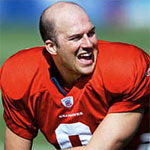Dr Rassman,
I am a 27-year-old female who has experienced a gradual overall thinning for the past 10 years. It is now fairly severe. I have always had low iron levels and saw a hematologist for over a year. My ferritin levels have hovered between 14-35, despite taking a 325mg ferrous gluconate supplement daily.
My ferritin is currently 14 and my hematologist says that since the laboratory test range is 10-150, my levels aren’t so bad; that it would take anemia to cause hair loss. My B12 is also in the low range – 325 on the 200-1200 normal zone. I feel that I must not be absorbing iron if the levels haven’t changed despite taking a supplement and I am frustrated by wasting more time without being able to rule this out as a source of the thinning. My two younger brothers have male pattern baldness but I am loathe to accept genetics are to blame for me too…
My question is: how low do iron levels have to be to be considered a legitimate cause for hair loss? And how soon would regrowth occur after normal levels are restored?
Thanks so much for your time.
Anemia is a very broad topic to tackle. There are many causes of anemia, like microcytic anemia and macrocytic anemia. Microcytic anemia is caused by iron deficiency, thalassemia, and various chronic disease. Macrocytic anemia is caused by folate and B12 deficiency. There is no cut off level of iron that one can define as the starting point for hair loss. Ferritin & Vitamin B12 deficiencies may produce hair loss and anemia and they may accompany other vitamin deficiencies including the entire B group [Vitamin B1 (thiamin),Vitamin B2 (riboflavin), Vitamin B3 (niacin), Pantothenic acid, Biotin, Vitamin B6 (pyridoxine), Folic acid (folate), Vitamin B12 (cyanocobalamin)].
Have you tried to take iron with vitamin-C? Sometimes that may help to increase absorption of iron. Liver and red meat have high iron levels. Your doctor may have evaluated your GI tract for mal-absorption problems leading to some malnutrition or other vitamins and nutrient deficiencies, each which may contribute to hair loss. If the normal level of iron is restored, it may take a few months before you can see noticeable regrowth of hairs.
![]()
![]()
Paid advertisements (not an endorsement):


 Now I’m not a huge sports nut, but I read enough news to know what’s going on. The nation seems to be obsessed with the hair, or lack thereof, of the Seattle Seahawk’s quarterback Matt Hasselbeck. I caught a few sportscasters on ESPN talking about his “shiny dome” a few nights ago, and since, I have noticed numerous respected sports journalists harping on, or even supporting, Matt Hasselbeck because he is bald.
Now I’m not a huge sports nut, but I read enough news to know what’s going on. The nation seems to be obsessed with the hair, or lack thereof, of the Seattle Seahawk’s quarterback Matt Hasselbeck. I caught a few sportscasters on ESPN talking about his “shiny dome” a few nights ago, and since, I have noticed numerous respected sports journalists harping on, or even supporting, Matt Hasselbeck because he is bald. 
